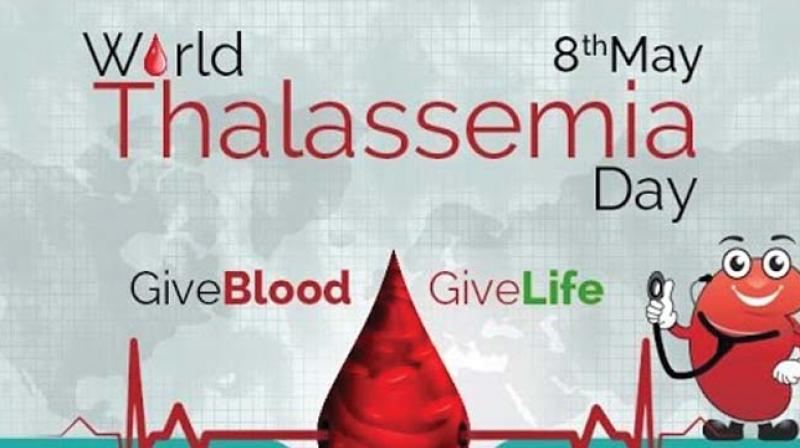Bengaluru: Timely screening can stop Thalassemia in children
Thalassemia is a blood disorder caused by the weakening and destruction of blood cells.

Bengaluru: Over 10,000 children in the country are born with thalassemia every year because couples, unaware of the congentical nature of the disease, pass it on to their children. On May 8, World Thalassemia Day, doctors recommended premarital screening and a pre-implantation genetic diagnosis (PGD) for couples undergoing invitro fertilisation.
Though premarital screening is available for disorders like thalassemia and sickle cell anemia and infectious diseases (hepatitis B, hepatitis C, and HIV/AIDS), couples very rarely opt for it.
Thalassemia is a blood disorder caused by the weakening and destruction of blood cells. It inhibits production of haemoglobin and RBCs. Children with thalassemia require regular transfusions and a bone marrow transplant is the only cure.
Dr Neema Bhat, Consultant, Paediatric Haematology-Oncology and BMT Physician, BGS Gleneagles Global Hospital, Bengaluru, said, “Increasing awareness about testing for thalassemia among first-time expectant parents will help in preventing. Testing during pregnancy or soon after birth gives an early diagnosis.”
The central government has proposed a draft policy for the care and control of thalassemia. Most private and government hospitals have care centres. Once the new policy is implemented, it is expected to make a big leap in controlling haemoglobinopathies in the country, doctors said.
Dr V.L. Ramprasad, COO, MedGenome Labs, said the government has proposed a draft policy for screening pregnant women for thalassemia and sickle cell anaemia. “Both men and women will be screened. In couples where both the partners are carriers, the prenatal diagnosis will be offered to ensure that they have a baby unaffected with a significant haemoglobinopathy,” he said.

